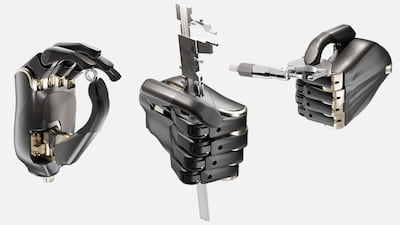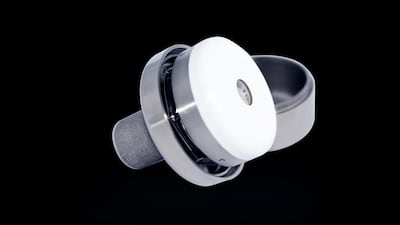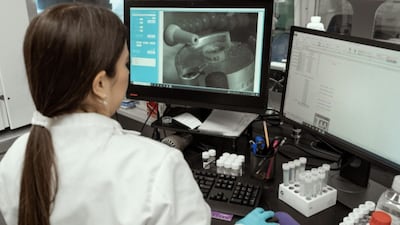Startups & SMEs
With capital being recycled, tariffs settling and interest rates softening, 2026 could provide more investment and growth opportunities in pharma and medtech, with AI giving a tailwind, say Taylor Wessing’s Ross McNaughton and Sarah Cole.
In an era of AI and other advanced computing methods, pure-play mechanical devices could offer better pricing and practicality, according to the CEO of prosthetics company Metacarpal.
Ireland's medtech ecosystem continues to flourish, with more than 50,000 employees across 700 companies. The sector set a venture capital record in 2024 and is on pace to match or exceed it this year.
Start-up medtech firms in the west of Ireland can benefit from incubator programs at two of the region’s universities, which support innovators across the medical device and digital health industries from concept to multi-employee businesses.
The French start-up has successfully implanted its ‘fishtail’ LVAD in a patient for 84 days, where it served as an effective bridge to transplant. Medtech Insight spoke to the company’s CEO, Louis de Lillers, to hear more about the company’s progress and his take on the evolving LVAD market.
The prosthetics market is evolving due to an increase in amputees from war and disease. Unhindr has developed a novel prostetic liner that can reduce the risk of further injury, while Esper is crafting advanced hand implants for Ukraine's front-line soldiers.
At the Medical Device Innovation Consortium summit, Cogmedix's Scott Cook discussed the challenges and benefits of transitioning to the FDA's Voluntary Improvement Program, which promotes honesty and opportunities for improvement, leading to faster market access and cost savings.
After rolling out its hair-based autism diagnostic across the US, LinusBio is expanding into Japan and testing its “molecular movie” technology for ALS and other neurological disorders, aiming to deliver the first objective biomarkers in pediatric and neuropsychiatric care.
The top awards at the annual MedTech Innovator APAC are handed out to an increasingly varied range of products and applications, and the class of 2025 was no exception in its reflection of healthtech’s ever-widening innovator base.
Evidence-based testing in real clinical settings and diagnostics tailored to community needs are crucial adoption success factors for new IVDs, Michael Wright, joint medical director at Newcastle Hospitals NHS Foundation Trust, told Medtech Insight at a regional UK meeting.
Resitu Medical has received FDA 510(k) authorization for the RESL09 breast cancer biopsy device. This handheld minimally invasive device excises tissue samples with diameters up to 9 mm and will first reach market in the US. The company plans to expand the tool’s clinical claims and core size range.
While Sunrise’s main differentiator is a sensor that detects movement of the lower jaw, the company’s growth plan leans heavily on artificial intelligence to make care scalable. In practice, that means AI handles data triage, therapy monitoring and adherence support.
Sonomind’s immediate focus is treatment-resistant depression, but the company sees broader applications for its platform to treat psychiatric conditions such as anxiety, post-traumatic stress disorder and addiction.
Sava Technologies has developed a CGM that uses microneedles to accurately measure glucose levels for up to 10 days without finger-prick calibration. The company raised £14.2m in Series A funding to establish in-house manufacturing for faster production.
A Sept. 17 panel at LSX in Boston discussed how brain-computer interface devices (BCIs) work, potential applications for BCIs, partnership, the investment landscape, ethical considerations and the five to 10-year outlook for the neurotech sector.
Medtech Insight spoke with Sanjay Kakkar, Tensive CEO, about the firm’s breast tissue regeneration implant and its surgical benefits, including a reduced operation time of 74 minutes. He anticipates regulatory approval for Regenera in early 2027.
SafeHeal has secured an additional €10m for its Colovac device, bringing its total funding to €97.5m. Led by Asabys Partners, this funding offers both economic and clinical benefits, potentially reducing costs and complications associated with temporary stomas.
Roche’s scanners have been integrated with PathAI’s AISight Dx system. The system’s FDA-cleared PCCP allows new components to be validated and integrated without additional FDA clearance. Eric Walk, chief medical officer, hints at future biopharma companion diagnostic collaborations.
Ketryx relies on a combination of continuous validation, testing, and human oversight to ensure the platform remains compliant and reliable as AI capabilities evolve, CEO Kaminski said.
Salient's inflammatory bowel disease test, built on the start-up’s Signal platform, is planned to launch in March 2026. The company leverages rich data from existing wellness tests to develop signatures, focusing on conditions that are often misdiagnosed and disproportionately affect women.




















